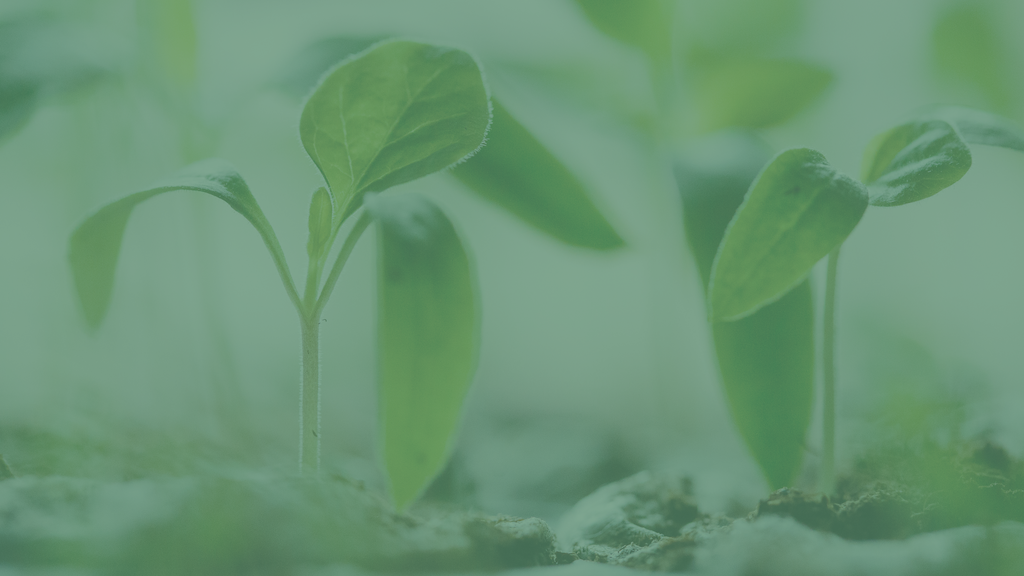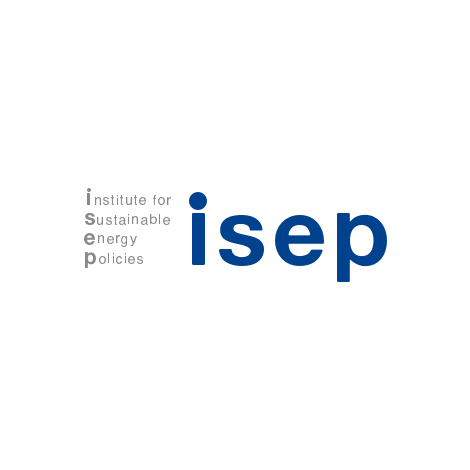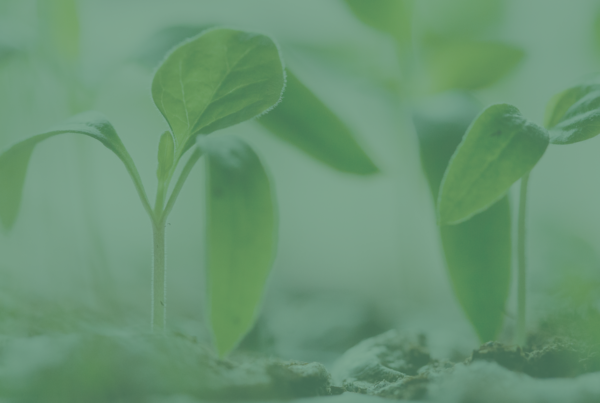Institute for Sustainable Energy Policies is pleased to invite you to our webinar on “Farming meets solar power in Africa: food and energy security for sustainable African communities towards post COVID-19 society” co-hosted by Mali-Folkecenter Nyetaa.
Report on the Webinar
The first webinar of the “Farming meets solar power in Africa – Food and energy security for sustainable African communities towards post-COVID-19 society” webinar series provided an overview of the ongoing development of agrivoltaics in East Asia and the potential to transfer the technology to Africa. Four distinguished speakers from Japan, South Korea, Mali, and Kenya gave presentations followed by a panel discussion about how agrivoltaics can effectively solve the challenges of African farmers.
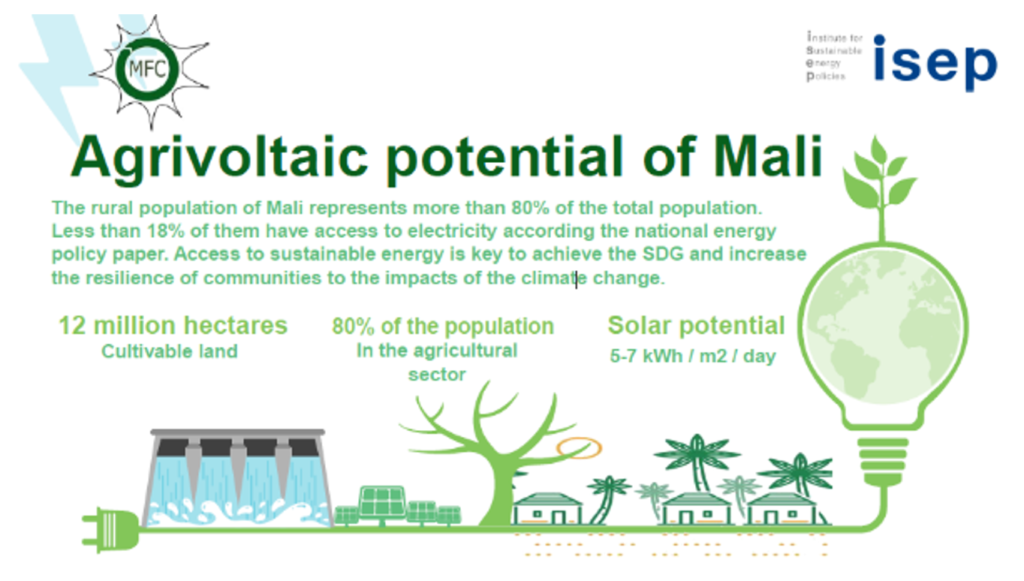 Dr. Ibrahim Togola, the co-founder of the Mali Folkecenter Nyetaa and the rural electrification company ACCESS, emphasized the potential benefits of agrivoltaics in Mali, where 80% of the population lives in rural areas with an electrification rate of less than 18%. The introduction of agrivoltaics in rural communities could significantly raise socio-economic factors by increasing the accessibility of electricity, improving food security, promoting job creation, and reducing health and gender issues.
Dr. Ibrahim Togola, the co-founder of the Mali Folkecenter Nyetaa and the rural electrification company ACCESS, emphasized the potential benefits of agrivoltaics in Mali, where 80% of the population lives in rural areas with an electrification rate of less than 18%. The introduction of agrivoltaics in rural communities could significantly raise socio-economic factors by increasing the accessibility of electricity, improving food security, promoting job creation, and reducing health and gender issues.
Marco Borghesi, a business development executive from InspiraFarms in Kenya, presented a hybrid system consisting of cold storage, a PV system, and a battery that has the potential to reduce diesel consumption by 80%. This design guarantees the best balance of C02 emission reduction and affordable electricity prices.
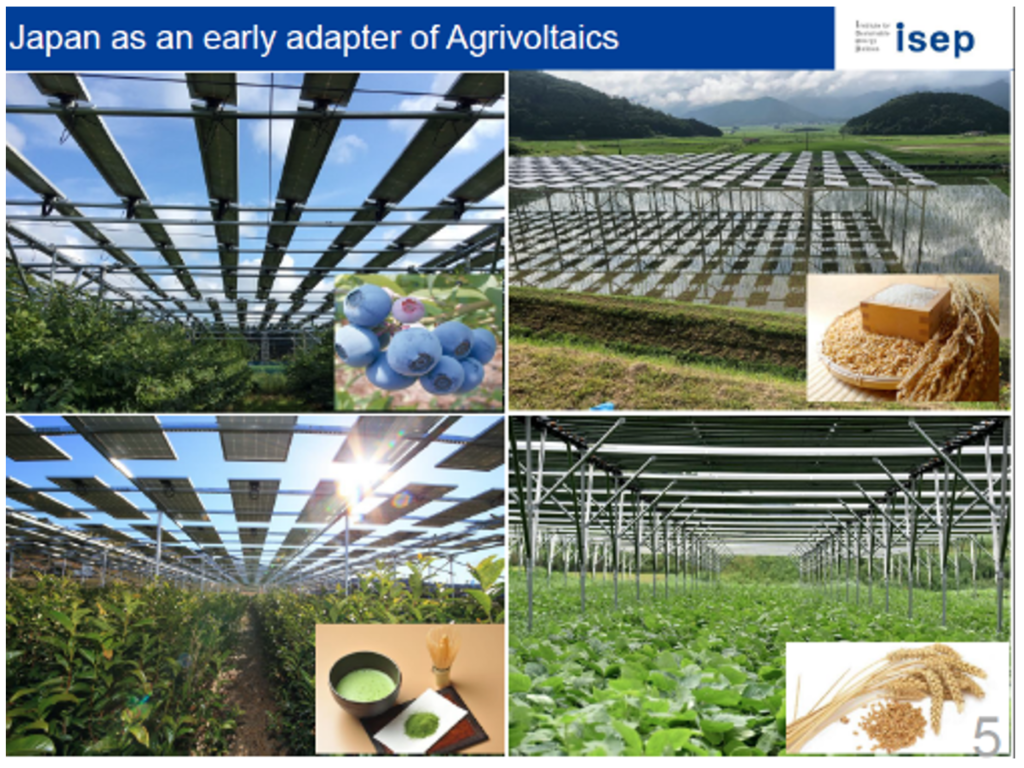 Tetsunari Iida, the founder and chairperson of ISEP, explained the current agrivoltaics development in Japan and its importance in the green recovery post-COVID-19. Japan is an early adopter and already has a lot of experience growing various crops in an agrivoltaics setting. Many benefits could be observed, like improved land-use efficiency, protection of crops against over-radiation, and cooling effects that are beneficial for both electricity generation and agricultural production. Furthermore, agrivoltaics development leads to more green jobs, an improved local economy, and, of course, climate mitigation, which are all crucial factors for a green recovery.
Tetsunari Iida, the founder and chairperson of ISEP, explained the current agrivoltaics development in Japan and its importance in the green recovery post-COVID-19. Japan is an early adopter and already has a lot of experience growing various crops in an agrivoltaics setting. Many benefits could be observed, like improved land-use efficiency, protection of crops against over-radiation, and cooling effects that are beneficial for both electricity generation and agricultural production. Furthermore, agrivoltaics development leads to more green jobs, an improved local economy, and, of course, climate mitigation, which are all crucial factors for a green recovery.
Finally, Dr. Cheolhyun Lim, Head of Solar energy R&D Department of the Green Energy Institute in South Korea, explained the promotion status of agrivoltaics in Korea. The South Korean government aims to install 10 GW of agrivoltaics until 2030 within their Renewable Energy 3020 Plan. Agrivoltaics is actively promoted because it can improve the farmer’s income and increase the share of solar PV without sealing valuable agricultural land.
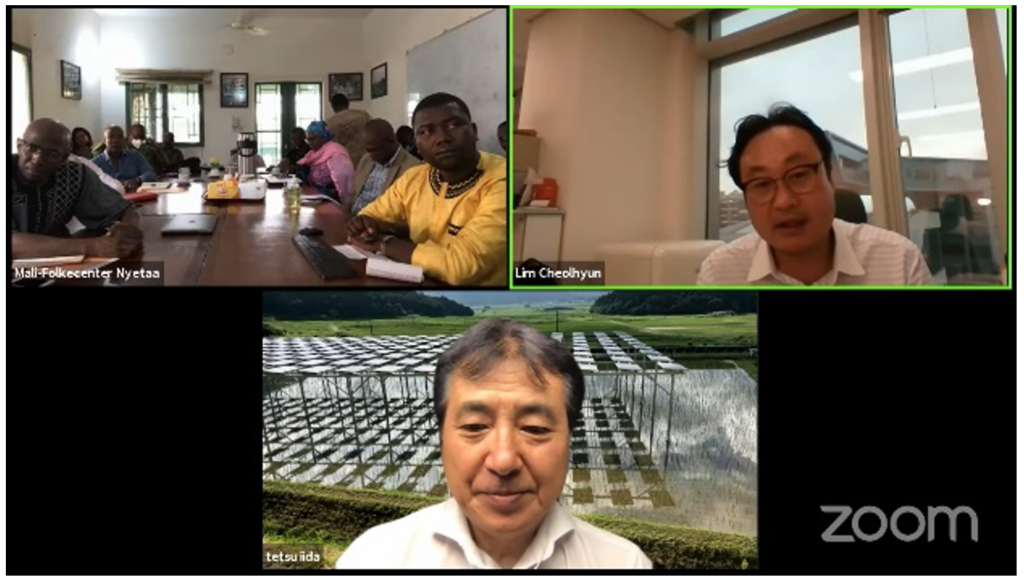 The consensus in the following discussion was that it is crucial to establish a first agrivoltaics pilot project in Mali as soon as possible. It is vital to get practical experience in the specific local context and follow a “learning by doing” approach. The lessons from the initial pilot projects can then improve the following projects and disseminate agrivoltaics on a larger scale in Mali and Africa.
The consensus in the following discussion was that it is crucial to establish a first agrivoltaics pilot project in Mali as soon as possible. It is vital to get practical experience in the specific local context and follow a “learning by doing” approach. The lessons from the initial pilot projects can then improve the following projects and disseminate agrivoltaics on a larger scale in Mali and Africa.
Please feel free to watch the recorded webinar on YouTube if you are interested in hearing the full presentations and discussion. We also included French subtitles for our francophone audience.
International Webinar Series on Agrivoltaics in Africa
Agrivoltaics is an economically and environmentally rational technology to produce both food and electricity on your farm or PV plants at the same time. It is rapidly gaining popularity in many countries but not yet in Africa.
It is important to consider unique situation of African countries to localize agrivoltaic technology. Therefore, in this seminar series, we will listen from both sides, from African countries and from agrivoltaic-rich countries to find a feasible way to introduce agrivoltaics to Africa. We will hold a webinar at least once a month, focusing on a different aspect of agrivoltaics each time.
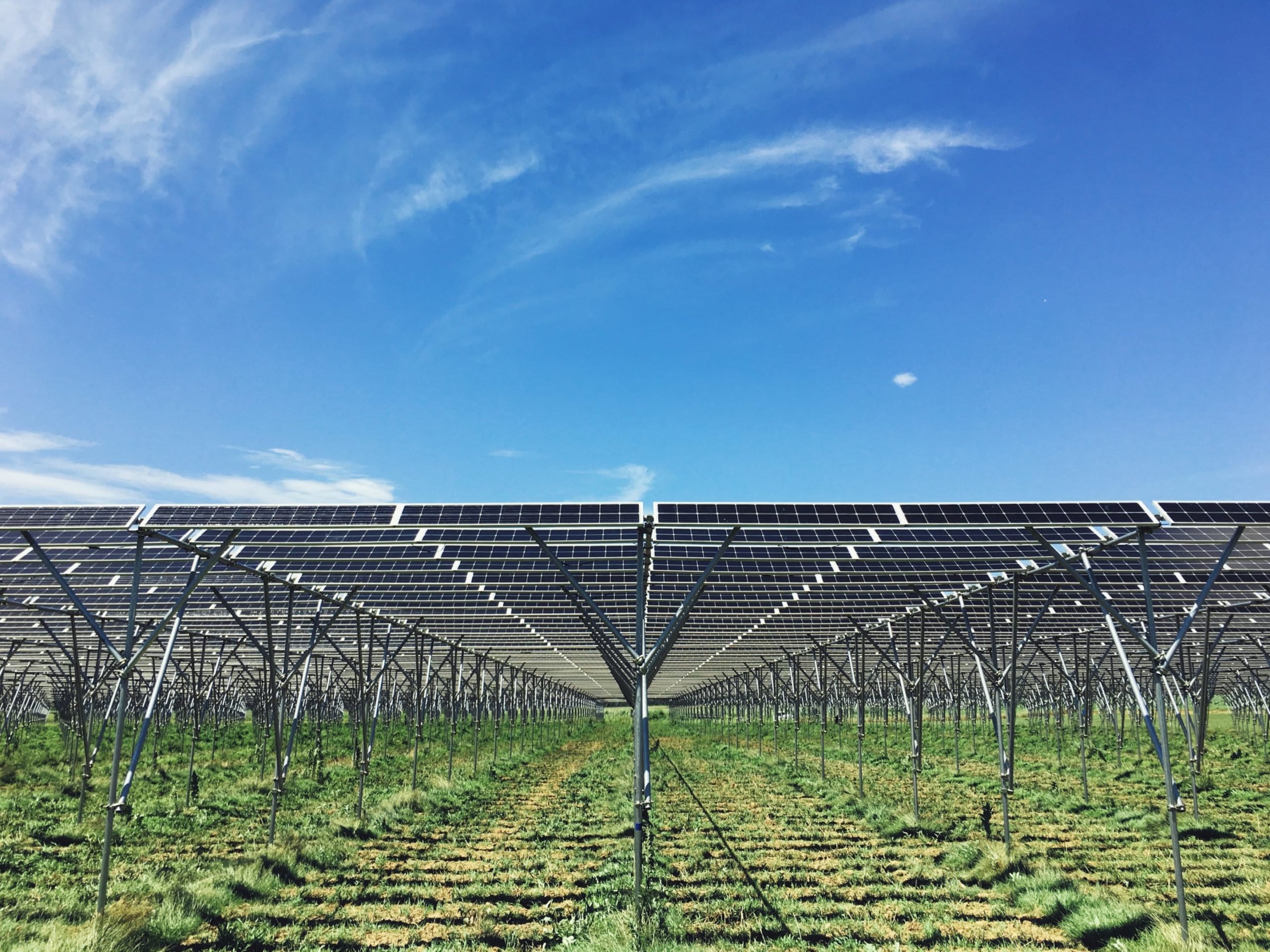
This seminar series is perfect for you if you want to:
- Improve livelihood of African rural population, and
- Be sustainable economically, socially, and environmentally.
Through this seminar series, you will learn:
- Benefit of agrivoltaics, and
- Practical applications of agrivoltaics to your local context.
Date & Time
Date: June 30, 2020
Time: GMT 9:00 – 10:00 / CET 11:00 – 12:00 / JST 18:00 – 19:00
Speakers
This time, we will invite 4 speakers from East Asia, and Africa:
- Tetsunari Iida, Institute for Sustainable Energy Policies, Japan
where there is the largest number of agrivoltaic farms in the world, - Lim Chol Hyun, Energy Valley Corporate Development Institute / Solar Energy Research Institute / Green Energy Research Institute, Korea
which introduced very aggressive national plan to install agrivoltaics in coming years, - Ibrahim Togola, Mali-Folkecenter Nyetaa, Mali
which has been developing distributed PV microgrids in rural area often nearby farms, and - Marco Borghesi, InspiraFarms, Kenya
Registration
To participate in the discussion as an audience, please register for FREE from the application form below:
- You will be informed by email whenever any changes occur.
- You can ask questions through Q&A function which the host can check and answer during the session.
Or, if you prefer just to watch this program, you can access YouTube Live from below link:
- Please note that contents of the session are subject to change.
- We hope you understand that you can leave your questions on the comment field, but the host will not be able to check them in real time.
Hosts
Support
Contact
Institute for Sustainable Energy Policies
Mr. Makoto Tajima
Please send message via contact form.

